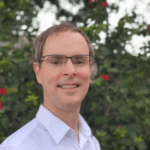Dr Tina Lam was a curious child, exploring any subject that took her fancy at her school’s library. Her natural interest in things led her to pursue a career in research, and she is now a Post-doctoral Research Fellow at the National Drug Research Institute where she specialises in alcohol and other drug use amongst young people.

What sparked your passion for science, and when did you decide you wanted to build a career in this area?
I’ve always had a curiosity about how things work – you’d find me on the school library floor voluntarily reading a book on ecology.
I gravitated toward working in public health as it’s an intersection between learning about a broad system such as human health, and making a prosocial difference within the community.
Describe your area/areas of research.
I am a Post-doctoral Research Fellow at the National Drug Research Institute. I specialise in alcohol and other drug use amongst young people, but I’ve also worked with drug treatment populations, and patrons who socialise within night time entertainment districts. In addition to these day jobs, I am compelled to investigate how we can support diversity and promote equity in our everyday lives – which you know, for the most part just means hassling people to vote.
How long have you been at Curtin, and where did you work/what did you do prior to joining the University?
I first joined Curtin almost a decade ago to pursue a PhD that investigated alcohol and other drug use at large events such as Leavers/Schoolies. Before that, I was studying for my Bachelor of Psychology with honours while working as a research assistant at the University of Sydney. I was also an active volunteer throughout this time at the Schizophrenia Fellowship, the Red Cross and Cyrenian House (alcohol and other drug counselling).

What have been your biggest challenges in your career, specifically as a woman in STEMM, and how did you overcome them?
One of my main challenges has to do with feeling like I belong in the room where the decisions are being made.
However, this also drives me to ‘prove myself’ though high quality outputs. Though some have recognised that I endeavour to ensure integrity is at the heart of my career, I have also learnt to take the initiative to actively promote my work through publications, the media, and professional networking.
What have been your biggest successes/successes you are most proud of?
I have just coordinated the successful completion of a national project with a team of 25 academics. I am pleased about how much I have learnt about providing assertive direction and working across jurisdictions.
What has assisted you in developing your career – for example, a mentor, supportive work environment, family support etc.?
My supervisor for the past decade has been invaluable in providing opportunities for me to work on a wide variety of projects.
My partner is a great support, reminding me of what I’ve achieved with the time and resources I’ve had at my disposal.
My parents have demonstrated true courage by taking big risks for all the right reasons. I try to pursue the opportunities they weren’t afforded while they were growing up, and were only opened up to me through their trip to Australia via refugee boat.
What makes a successful scientist?
Tenacity.
What would you say to young girls and women who are interested in developing careers in STEMM?
It’s a double sided coin – it can be daunting, but that open-ended choice also means there are virtually unlimited possibilities.

What are the barriers to women participating successfully in STEMM areas – systemic, personal, and professional – and what can we do to improve this?
The ‘Leaky Pipeline’ in STEMM is where women are less and less likely to be represented in every step up the academic hierarchy. In Australia, women are equally likely to hold a Bachelor’s degree or a post-doctoral early career position in STEMM, but males comprise 80% of most senior positions within the field.
Australia’s Office of the Chief Scientist reports that child caregiving responsibilities seem to account for some of these differences, but not all. Women who have children earn less than women who do not have children, but both groups of women still earn less than men of the same age and post-doctoral qualification.
So in addition to family caregiving responsibilities, there are quite a number of other reasons for this gender differential in STEMM promotions. For example, when applying for a job, employers’ can have negative gender based stereotypes (‘unconscious bias’). Also, there is also a ‘confidence gap’ where men are confident about their skillset when their ability is at a 60% level, whereas women will feel confident once they have gained full mastery of that skillset.
So for example, if a job application identifies five essential criteria, men will feel confident about applying for the job, even if they have mastery of only three criteria, whereas women will only apply if they are fully qualified under all five criteria. This might have something to do with the finding that 3-7 timesmore men apply for STEMM grants than women. This confidence gap continues to be at play once a candidate reaches the interview stage. So, when employers are listening to candidates’ self-report on their aptitude, they should be aware that men are more likely to ‘boast’ and women more likely to be modest about their professional capacities.

Something I’ve learnt from working in the field of addiction is that you’re more likely to change if there’s something positive to look forward to (rather than to avoid something negative). In the same way, I think we need to talk about equal representation in terms of how it can benefit everyone, not just marginalised groups.
There are many men who would like to spend more time with their kids. ‘Use it or lose it’ models of two-month paternity leave used in some Western and Northern European countries have demonstrated that if a father gets involved with the caregiving of a newborn, they continue to have greater confidence and bonding with their child. This bonding fosters a higher quality relationship between father and child, and taking at least a month of paternity leave sets a precedent from birth onwards that both parents have an active role in both home and professional life.
It’s a good enough idea that Mark Zuckerberg, founder and CEO of Facebook, took two months of paternity leave in 2016!

On reflection, is there anything you would change about your career?
I think having studied across multiple fields and having diverse work experience really comes in handy in a career, as well as in life in general.
Could you please list any major awards/grants etc., which reflect your professional success?
- 2008-2011 – PhD Scholarship via WA Department of Communities
- 2013 – McCusker Award for Action on Alcohol
- 2014-2018 – Healthway Early Career Research Fellowship
- 2016-2017 – Commonwealth Department of Health grant for the national project I coordinate – the Young Australians Alcohol Reporting System
Anything else you’d like to add?
I like to balance my work within the sciences with illustration as a hobby. I think it’s a mental-health insurance plan to have multiple pursuits that bring you satisfaction – not only your career, but family, friends, and hobbies, all going at once.


